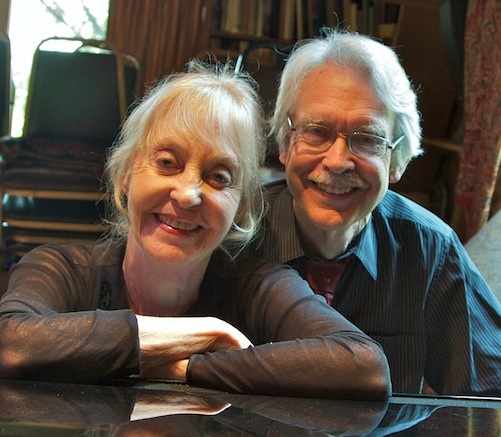Twenty-Fifth Anniversary Season
August 23-31, 2014
New Beginnings at Token Creek
When the Token Creek Festival began, twenty-five years ago, we had many ideas, many ideals, but none of our plans involved growth. The reason for that was at first practical. We wanted to perform in a converted barn, the very space where we already practiced and played. The space and its surroundings is welcoming, but able to seat, optimally, no more than eighty people. We had no stage, no lights, and no parking plan. We were our own maintenance and groundskeeping staff.

We also had ideas about the music we would like to present. We had participated in various summer festivals, and were not too interested in the concept of “summer” music. Along with our founding colleagues, Jorja Fleezanis and Michael Steinberg, we came up with some initial programs ‐ Beethoven’s Grosse Fuge, Schoenberg’s Ode to Napolen, recent pieces by Helps and Harbison, thinking of music we wouldn’t likely be asked to prepare at other festivals, in late August.
In the official re-opening season (1994) there were three concerts: all Bach, all Mozart, all Schoenberg. Single composer concerts have since been rare at Token Creek, but we have instead done series: many Haydn trios, the complete Mozart concertos for which he made chamber music arrangements, the “esoteric” final period of Bach, including generous selections from The Art of Fugue, and The Musical Offering in two different orderings and instrumentations.
Our guests have been friends who we have cone to know in our various travels. We were once told by a possible patron that he would fund the festival for two seasons if we would bring X, a conductor with whom we were in close partnership. But this is not the way we have chosen to construct our seasons ‐ independence in programming and staffing has remained our most precious freedom.
We have presented what interests us, and the varying audience sizes, from sold-out to modest, reflects that determination. Thirty excited, involved listeners provide a sufficient presence, in our small barn, for an unforgettable occasion, like Leonard Stein’s lecture-demonstration on Beethoven’s Hammerklavier sonata.
Ten years ago we expanded into jazz, eventually composer-focused, with an idea that some of the players would play in both, and we would encourage an audience to embrace the whole series. In the early years we stressed themes and issues shared by both forms. (An audience survey later revealed that in fact the crossover audience is very small, we were surprised.) The jazz became popular, and began in certain ways to drive the festival, especially logistically (a night-club set up, an eventual two-concerts-per-day schedule). Part of our effort to recapture the original spirit of the festival involves letting go of the jazz for this year, becoming smaller and more thoughtful again.
One of our best colleagues, a performer, has a brother, a violinist, who started a European festival. It grew, it added things on, his responsibilities changed. Is he happy with the growth, we asked. “Well of course, it’s a success, but he is pretty sad… he no longer plays the violin.”
Every musician is challenged, at every point in their development, to try to remember why they went into music, to recapture the basic impulse. Sometimes that requires going back to a starting point, and either starting over, or summarizing what has happened. Institutions, like individuals, always challenged to grow, to go forward, to move on, must occasionally reconstruct themselves, at the risk of not fitting expectations, dreams, or the economic model.
With the hope of encountering their best instincts, and reconnecting with like souls, the natural constituency.

John and Rose Mary Harbison
Artistic Directors